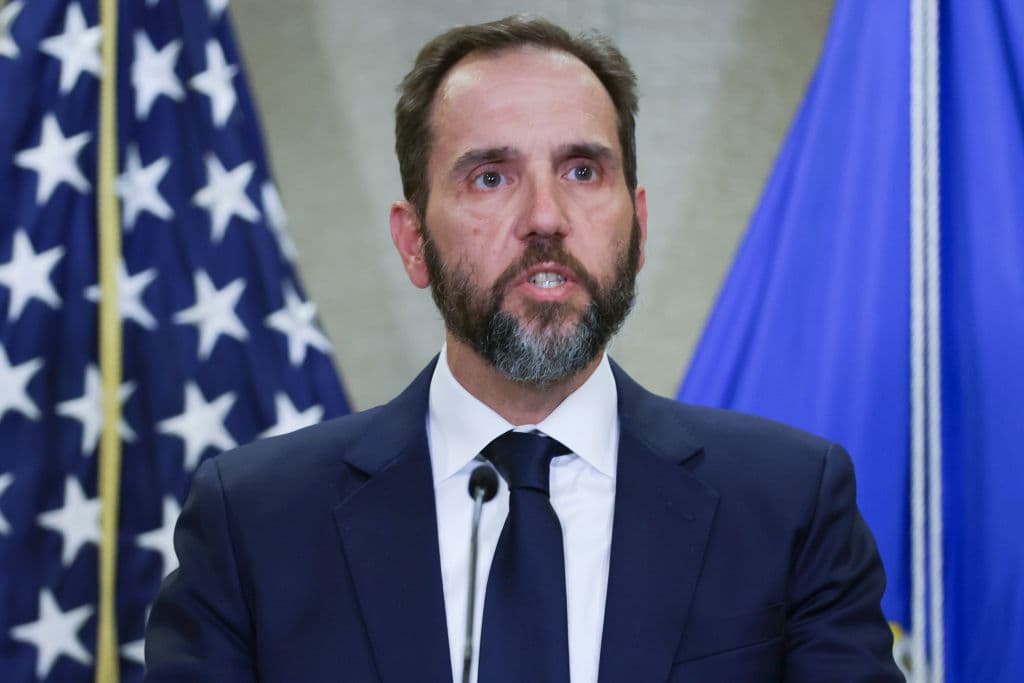Could Jack Smith Respond to His Latest Setback From Judge Cannon by Charging Trump With More Crimes?
One of the signature moments from the special counsel’s indictment is lingering in litigation limbo.

Judge Aileen Cannon’s ruling that a secret map must be struck from Special Counsel Jack Smith’s indictment forces the prosecutor to either comply or charge President Trump with more crimes.
The relevant portion of the indictment alleges that Trump showed a Political Action Committee adviser a “classified map of Country B … The PAC Representative did not have a security clearance or any need-to-know classified information about the military operation.” Mr. Smith, though, did not charge this act as a crime. Country B is allegedly Afghanistan.
The special counsel could now reconsider. The Espionage Act interdicts “whoever knowingly and willfully communicates, furnishes, transmits, or otherwise makes available to an unauthorized person, or publishes, or uses in any manner prejudicial to the safety or interest of the United States or for the benefit of any foreign government to the detriment of the United States any classified information.”
Mr. Smith’s charges have thus far alleged only illegal retention of classified documents, not their dissemination. Dissemination is punishable by up to a decade in prison. The requirement that the sharing of classified materials be done “knowingly and willfully” could be met by the special counsel’s allegation that Trump told his adviser, Susie Wiles, that “as president I could have declassified it” but that “Now I can’t, you know, but this is still a secret.”
Judge Cannon found the inclusion of the incident under those terms “not appropriate” because the “Federal Rules of Criminal Procedure contemplate a specific procedure governing attempts to introduce evidence of other crimes, wrongs, or acts.” Mr. Smith hoped that mention of the display of the map would cement a perception of Trump’s recklessness with respect to records.
“Pre-trial notice,” Judge Cannon held, “must be given with supporting reasons” for the introduction of evidence that is not charged but only meant to underscore a baleful propensity. She acknowledged that Mr. Smith can attempt to present the episode to the jury at a later juncture of the trial, when the “full evidentiary picture” has come into focus.
If Mr. Smith decides to amend his indictment to charge Trump with more crimes — a common enough prosecutorial practice — it will not be the first time he has done so. The special counsel originally charged the 45th president with 31 violations of the Espionage Act, but in July 2023 added an additional count. Trump is also charged with eight crimes of obstruction.
That 32nd Espionage Act charge centers on a colloquy Trump had with his camarilla at Bedminster in 2021, when he was captured on a recording discussing the classification status of what Mr. Smith in his indictment calls a “presentation concerning military activity in a foreign country.” The country in question is Iran. Trump is heard saying “these are the papers.”
Trump afterwards claimed that “There was no document. That was a massive amount of papers and everything else talking about Iran and other things. And it may have been held up or may not, but that was not a document. I didn’t have a document, per se. There was nothing to declassify. These were newspaper stories, magazine stories and articles.”
If Mr. Smith wants to introduce the now-struck engagement between Trump and his aide — it is allegedly Susie Wiles, who plays a prominent role in his reelection campaign — he could yet do so at trial. Judge Cannon explains that referencing such a memorable moment as evidence of Trump’s habitual recklessness is the kind of ploy that would need to be litigated at length.
If Mr. Smith does not want to wait until, as Judge Cannon puts it, the “contours of defenses are crystallized” and the “full evidentiary picture” has come into focus, he can simply charge the interaction with Ms. Wiles that he now only includes for color. The special counsel, though, would then be obligated to prove Trump’s guilt beyond a reasonable doubt.

